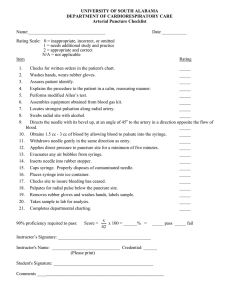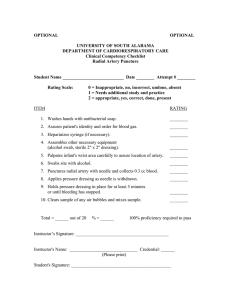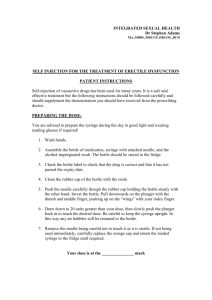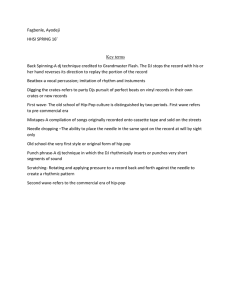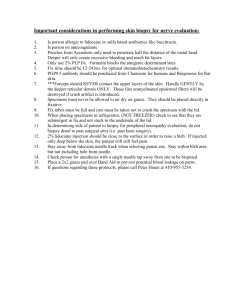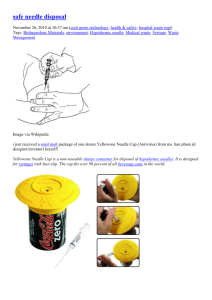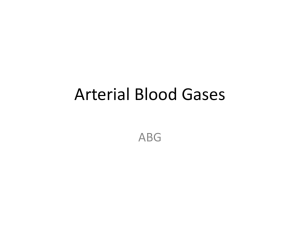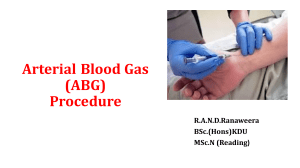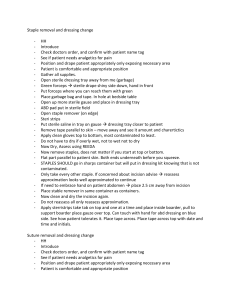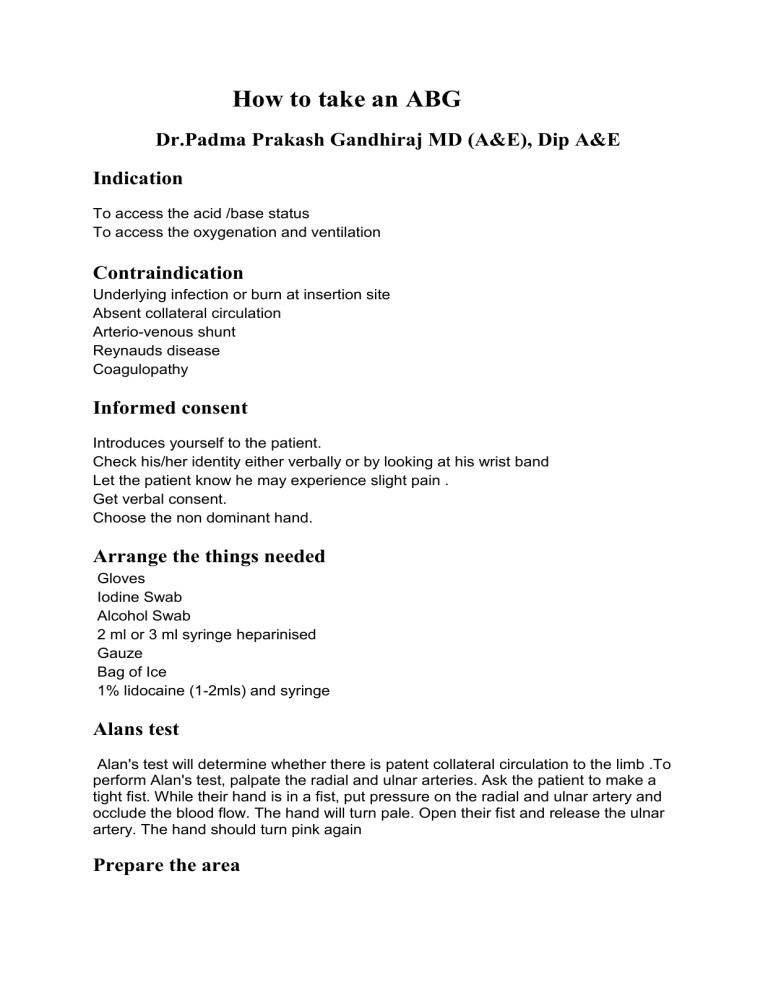
How to take an ABG Dr.Padma Prakash Gandhiraj MD (A&E), Dip A&E Indication To access the acid /base status To access the oxygenation and ventilation Contraindication Underlying infection or burn at insertion site Absent collateral circulation Arterio-venous shunt Reynauds disease Coagulopathy Informed consent Introduces yourself to the patient. Check his/her identity either verbally or by looking at his wrist band Let the patient know he may experience slight pain . Get verbal consent. Choose the non dominant hand. Arrange the things needed Gloves Iodine Swab Alcohol Swab 2 ml or 3 ml syringe heparinised Gauze Bag of Ice 1% lidocaine (1-2mls) and syringe Alans test Alan's test will determine whether there is patent collateral circulation to the limb .To perform Alan's test, palpate the radial and ulnar arteries. Ask the patient to make a tight fist. While their hand is in a fist, put pressure on the radial and ulnar artery and occlude the blood flow. The hand will turn pale. Open their fist and release the ulnar artery. The hand should turn pink again Prepare the area Clean the area around the radial artery with the iodine swab. Start at the middle and clean out in a circular motion. Let dry and wipe away with the alcohol swab. Anesthetise the area (Optional) Anesthetise the area with 1-2% lidocaine to produce a 2mm bleb under the skin. Prepare the syringe Load the syringe with 1 ml of heparin and then empty it completely without air. Insert the needle Palpate the artery and feel for a pulse. Roll your finger right up from the pulse and insert the needle. Insert the needle at a 45 degree angle making sure the bevel is up. Aim for the pulse, not the bone. Collect about 0.5 ml of blood. Remove the needle Gently and quickly remove the needle and at the same time put 2x2 gauze over the over the incision. Press firmly for two-five minutes Remove the air bubbles Remove the air bubbles by gentle tapping in upright position. Place it in the ice bag Complications Bleeding Hematoma Arterial occlusion Infection – arteritis /cellulitis Embolisation
